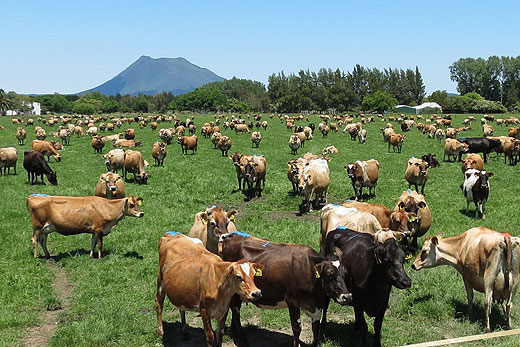Kiwi farmers are in a good position to deal with what could be the biggest El Nino since 1998, says Deputy Prime Minister Bill English.
Bill says the Treasury has "built in" an expected $700 million loss from a "reasonably mild" El Nino, but believes the economy could handle a more severe bout of dry weather.
Niwa says the El Nino weather pattern is set to continue in New Zealand, and "by some measures" could match the 1997/98 El Nino which caused a serious drought. Photo: File.
Niwa's latest report has confirmed the El Nino weather pattern will continue over the next three months - with average to below average temperature and rainfall levels predicted for most parts of the country.
"By some measures, the current event is on par with the 1997/98 El Nino (the strongest since 1950)," the report says.
The drought associated with the 1997-98 El Nino resulted in a loss of $618 million or 0.9 per cent of GDP - a figure estimated by the New Zealand Institute of Economic Research.
Bill told TV3's Paul Henry a similar effect on GDP would now result in a loss of about $2 billion, but he did not believe the impact would be that high.
"Treasury's built in about .3 per cent so if it's a reasonably mild El Nino, we've probably about covered it - if it's significantly more severe it might be about as much again, but this is an economy that can handle it."
A harsh El Nino would affect farmers most significantly, particularly those in the dairy industry who were already under pressure due to low dairy prices.
"It's reasonably tough for them but I think we've all adapted to the fact they're going to be earning a bit less, so let's just hope that El Nino's not going to be as intense as the weathermen are telling us."
Bill says farmers are better prepared to deal with any consequences of El Nino than they were in 1998.
"You have a very competent industry: [with] their skills levels, their ability to manage all the variables of weather, animal production, of the grass and milk production, they're in reasonable shape.
"It won't make it easier for them but you get the sense they know what to do."
Banks were offering farmers financial support as they had a stake in their success, but Bill says many farmers appeared confident enough to go it alone.
"I think the banks understand, they've lent a lot of money, they have a big stake in a long-term future for the industry.
"In fact, some of the more experienced farmers have been turning down help offered by Fonterra in the shape of advance payments so I think that's a pretty good sign."



0 comments
Leave a Comment
You must be logged in to make a comment.